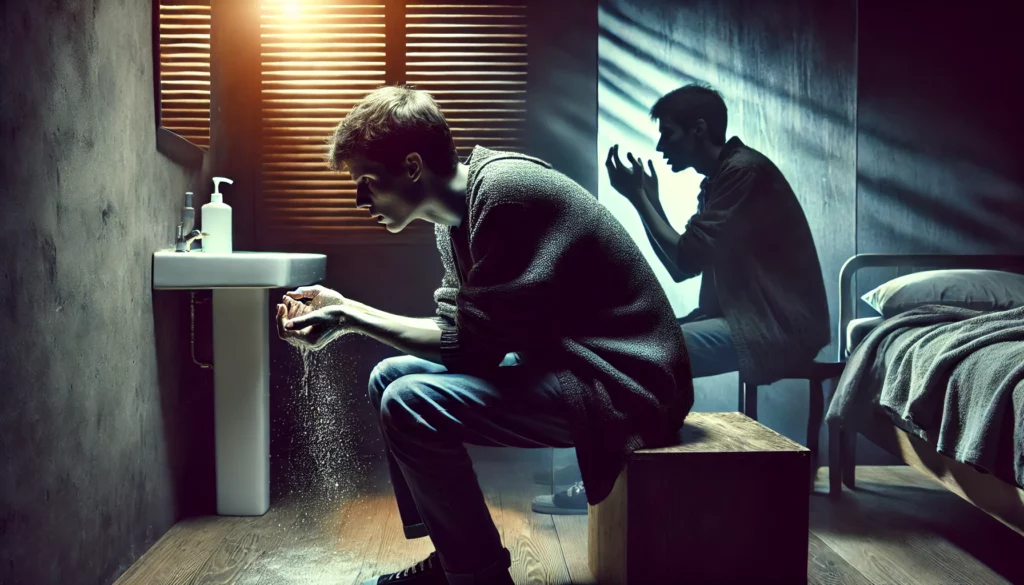
1️⃣ Introduction
Compulsive behaviors are repetitive, obsessive actions that individuals feel compelled to perform to reduce anxiety or distress. They occur in both bipolar disorder and unipolar depression, significantly affecting daily life. This report describes the characteristics, causes, differences, and treatment options for compulsive behaviors in both disorders.
2️⃣ Definition and Symptoms
🔄 Compulsive Behaviors in Bipolar Disorder
People with bipolar disorder experience extreme mood swings that also influence compulsive behaviors:
- During manic episodes:
- Excessive checking behaviors (e.g., repeatedly organizing or cleaning)
- Impulsive, compulsive actions such as excessive shopping or risky decisions
- During depressive episodes:
- Repetitive rituals to reduce anxiety (e.g., continuously checking security measures)
- Avoidance behaviors to prevent perceived negative consequences
😞 Compulsive Behaviors in Unipolar Disorder (Major Depression)
In unipolar depression, compulsive behaviors often manifest as:
- 🛑 Perfectionistic rituals: Constant checking or correcting to avoid mistakes
- ⚠️ Protective behaviors against fear: Compulsive praying, counting, or touching specific objects
- 🔄 Repetitive self-monitoring: Constant overthinking and reassurance-seeking from others
3️⃣ Causes and Connections
🧠 Biological Factors
- Neurotransmitter imbalance: Serotonin and dopamine deficiencies contribute to compulsive behaviors
- Genetic predisposition: Increased risk with a family history of compulsive tendencies
💡 Psychological Factors
- Early childhood experiences: Strict upbringing or traumatic experiences as triggers
- Anxiety and stress management: Compulsive behaviors as a strategy to reduce uncertainty
4️⃣ Treatment Options
💊 Medication Therapy
- Antidepressants (SSRI, SNRI): Regulate serotonin levels
- Mood stabilizers (e.g., lithium): Particularly effective in bipolar disorder
🧠 Psychotherapeutic Approaches
- Cognitive Behavioral Therapy (CBT): Identifying and restructuring compulsive patterns
- Exposure and Response Prevention (ERP): Teaching individuals to resist compulsive actions
- Mindfulness Training: Strategies for better emotional regulation
5️⃣ Conclusion
Compulsive behaviors occur in both bipolar and unipolar disorders but differ in intensity and triggers. While they fluctuate with mood changes in bipolar disorder, they are often driven by anxiety and perfectionism in unipolar depression. A combination of medication and psychotherapy can help reduce distress and improve the quality of life.